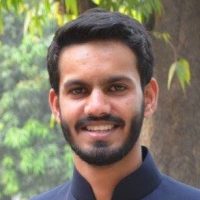The so-called Islamic State of Iraq and Syria (ISIS)/Daesh is a relatively new terror organisation, but one with large and gruesome ambitions. Their activity in the Middle East, European capitals and American suburbs gain most of the headlines, but areas of Asia and Africa are hardly immune. On paper, India looks vulnerable. It is part of the imagined Khorasan territory of the ancient caliphate that ISIS seeks to recreate. It has the third largest Muslim population in the world, the majority of them Sunni. Some fear this population is a fertile recruitment ground for radicalization.
Though ISIS vows to wipe out the Shia Muslim and Hindu populations in the country, to date no attack has taken place within India. The organisation has managed to recruit only a handful of people in the country (fewer than ninety, according to reports). And within India, only 68 people have been arrested for having links to ISIS, or on suspicion of such ties.[1]
Some of this has to do with preparedness, perhaps. India is neither inexperienced nor unaccustomed to dealing with terrorism, both at home and abroad. According to the Global Terrorism Index 2016, India ranked as the eighth most affected country by terrorist attacks.[2] Although India’s loopholes in combating terrorism were exposed during the November 2008 Mumbai attacks, the country has in recent years taken important steps to improve India’s prevention and response capacity.
The government has also initiated a series of steps to check the spread of ISIS, including the launch of a counter-radicalisation and de-radicalisation strategy. It strictly monitors social media activity. People with suspected links to ISIS have been put under surveillance and are being observed by the authorities. The government is also setting up a “war room” with a 24/7 centre designed to continuously monitor social media. Officials of Ministries of Home and Telecommunication and agencies like the Intelligence Bureau (IB), National Technical Research Organisation (NTRO) and Computer Emergency Response Team-India (CERTIn) are deliberating on immediate measures to combat the growing use of cyber space for spreading communal hatred.[3]
But despite all this, another major factor, I argue, is that Indian Muslims are reluctant to resort to extremism. This is grounded in India’s historic roots of harmony, tolerance, mysticism and diversity.[4] In addition to strong family values, India has a very strong cultural and national identity that cuts across religious beliefs, which has played an important role in preventing radicalization.[5] Moreover, the majority of the Muslims in India have historically also followed the Sufi strain of Islam, which is liberal and spiritual, unlike the radical Wahhabi and Salafist strains followed by members of ISIS. Nearly 70,000 Indian Muslim clerics signed a fatwa against ISIS and other terror groups, stating that they were not Islamic organisations. The head of the Dargah Aala Hazrat shrine at Ajmer, Rajasthan, where the fatwa was issued, stated that it was written in the Quran that killing one innocent person is equivalent to killing all humanity.[6]
Politics also helps. Muslims take part at different levels of administration and governance. Though India has been asked to play a more active role in the Middle East, the government has chosen not to join the US-led coalition against ISIS. For now, India has more pressing domestic issues and external problems closer to home to worry about. And if the country were to join the coalition, many fear its enormous diaspora would become a bigger target.
Few would support military action. There could also be a backlash from within India’s Muslim community. The destruction of holy sites would certainly inspire condemnation. Further, the government does not want to take drastic action which could instigate Shia-Sunni tensions within the country. Sending troops to the Middle East might cause resentment among Indian Muslims and provide an opportunity to become a breeding ground for the various terrorist organisations.[7]
Indian Prime Minister Modi addressed a four-day conference of Sufi scholars in March 2016, intended to promote tolerance as a counterpoint to the rise in terrorism and extremism. The Prime Minister’s presence was seen as an outreach to Muslims and a bid to ease concerns that his Bharatiya Janata Party (BJP) is pursuing a Hindu revivalist agenda.[8]
The government is also trying to reach out to vulnerable populations. Indian security agencies have studied other countries’ practices in dealing with radicalised Muslim youth. The Home Ministry is implementing a counselling hotline run by non-profit groups.[9] Other efforts are aimed at tackling unemployment.[10]
The country needs to pay special attention to sensitive areas like Kashmir and the North East. The rise of ISIS may give a fillip to the jihadi forces in Kashmir and cross border terrorism as there have been previous linkages between the group and Pakistani terrorists.[11] Adequate care and importance needs to be given to developing and integrating these regions into the country in a more significant way. In accordance with this, security at the borders needs to be increased. Cross border attacks like Pathankot and Uri are unnerving, and the prevention of terrorists crossing into India needs to become a priority.
Apart from beefing up security forces and surveillance measures, steps need to be taken at the grassroots levels to prevent radicalisation. The teachings of Islam to young minds in madrasas and other religious institutions needs to be monitored, with mutual respect and in proper consultation with religious clerics and leaders so as to not hurt the sentiments of the Muslim society. Local communities have a key role to play in persuading the younger generation not to succumb to extremist ideology.[12]
It is also important to educate unemployed youth who are at risk radicalization. For this reason, the ministry of minority affairs has been asked to implement various welfare and employment-oriented schemes, especially in the “vulnerable pockets” of the country.[13] Though poverty is not necessarily equivalent to radicalization in India, we need to make sure it does not become a factor in this process.
References
[1] Michael Safi, 29th November 2016, “How Isis recruiters found fertile ground in Kerala, India’s tourist gem,” The Guardian, https://www.theguardian.com/world/2016/nov/29/isis-recruiters-fertile-ground-kerala-indias-tourist-gem?CMP=oth_b-aplnews_d-2.
[2] “Global Terrorism Index 2016,” Institute for Economics & Peace, http://economicsandpeace.org/wp-content/uploads/2016/11/Global-Terrorism-Index-2016.2.pdf
[3] Abhishek Bhalla, 24th December 2015, “India wants 24×7 war room to tackle cyber threat from ISIS,” Mail Today, http://indiatoday.intoday.in/story/government-plans-social-media-scanning-centre-to-take-on-isis/1/554878.html
[4] Abhinav Pandya, 29th December 2015, “Why ISIS Can’t Make Much Headway With Muslims In India”, The Huffington Post, http://www.huffingtonpost.in/abhinav-pandya/why-isis-cant-make-much-h_b_8824410.html
[5] Rachit Ranjan, Munshi Zubaer Haque, 15th August 2015, “Tackling the ISIS: Towards a Robust Indian Anti-Terrorism Policy,” http://www.indrastra.com/2015/08/FEATURED-Tackling-ISIS-Indian-Anti-Terror-Policy-by-Rachit-Ranjan-and-Munshi-Zubaer-Haque.html
[6] Caroline Mortimer, 11th December 2015, “70,000 Indian Muslim clerics issue fatwa against ISIS, the Taliban, al-Qaeda and other terror groups,” Independent UK, http://www.independent.co.uk/news/world/asia/70000-indian-muslim-clerics-issue-fatwa-against-isis-the-taliban-al-qaida-and-other-terror-groups-a6768191.html
[7] Devanik Saha, 14th January 2015, “Five reason why India should not join war on ISIS,” daily O, http://www.dailyo.in/politics/five-reasons-why-india-should-not-join-war-on-isis-narendra-modi-barack-obama-pakistan/story/1/1504.html
[8] Anjana Pasricha, 17th March 2016, “Indian PM Praises Islam at Sufi Conference,” Voice of America, http://www.voanews.com/content/indian-prime-minister-praises-islam-sufi-conference/3242329.html
[9] Ronald Meinardus, 6th March 2015, “Deaf Ears: India and the “Islamic State”,” The Globalist, http://www.theglobalist.com/deaf-ears-india-and-the-islamic-state/
[10] May 9th 2016, “India Monitoring Social Networks To Combat ISIS Threat,” NDTV, http://www.ndtv.com/india-news/india-monitoring-social-networks-to-combat-isis-threat-1404218
[11] Chandra Mauli Singh, “Proclamation of caliphate by ISIS: Challenges for India,” http://www.academia.edu/7767788/Proclamation_of_caliphate_by_ISIS_Challenges_for_India
[12] Alvite Singh Ningthoujam, 28th Semptember 2015, “India Wakes up to ISIS Threat,” India Defence Review, http://www.indiandefencereview.com/india-wakes-up-to-isis-threat/
[13] May 9th 2016, “India Monitoring Social Networks To Combat ISIS Threat,” NDTV, http://www.ndtv.com/india-news/india-monitoring-social-networks-to-combat-isis-threat-1404218



